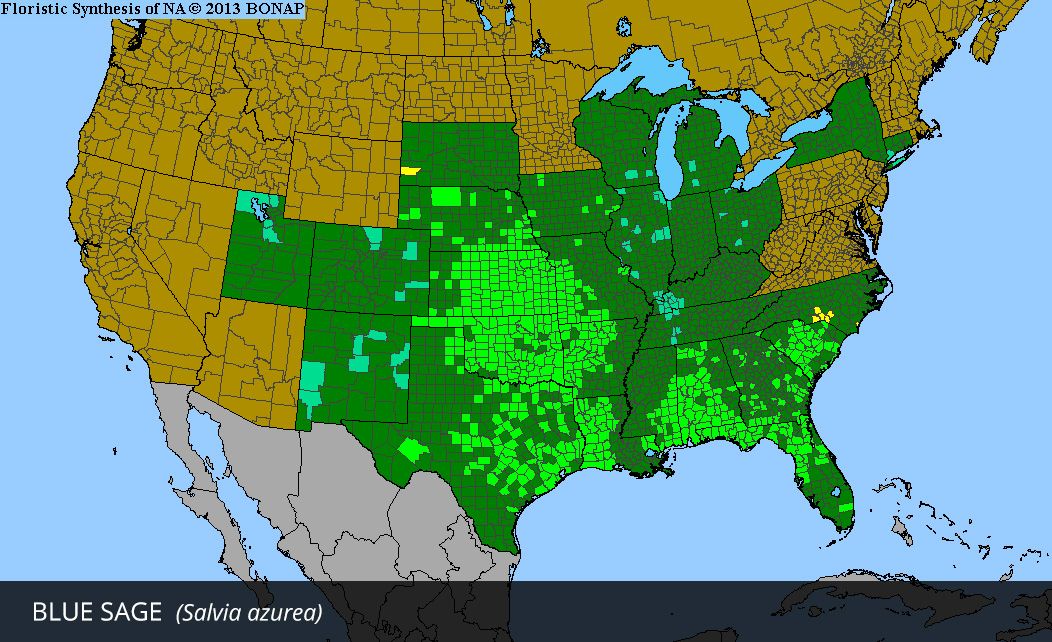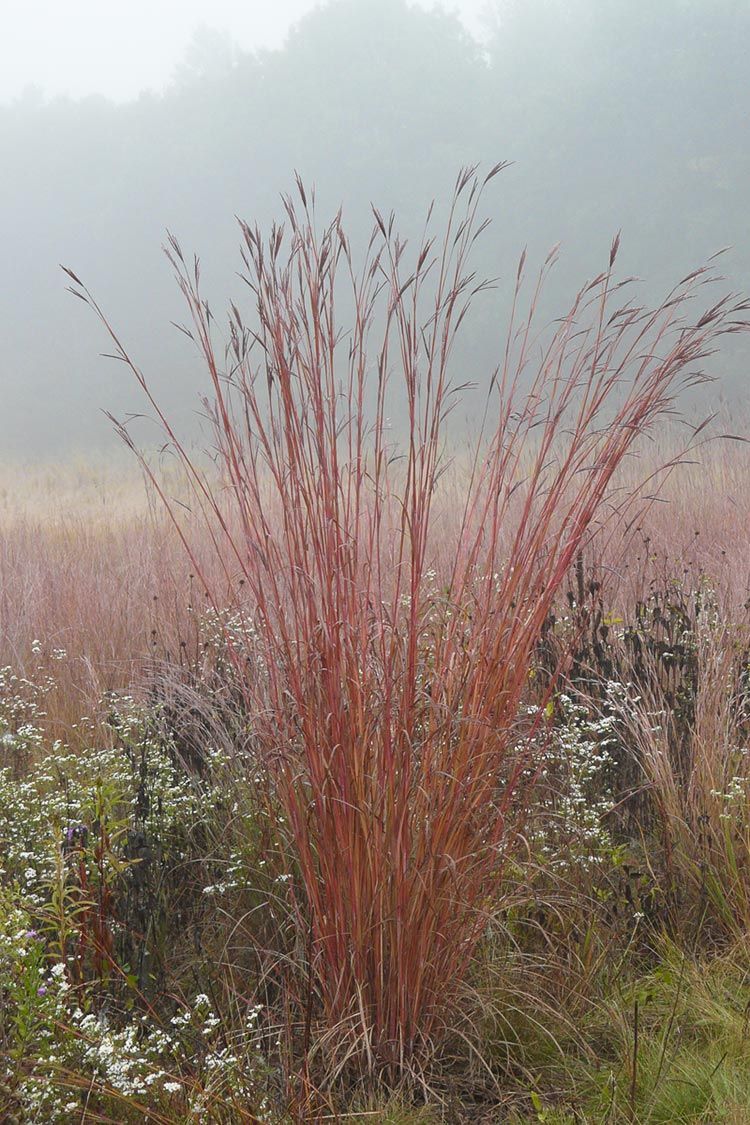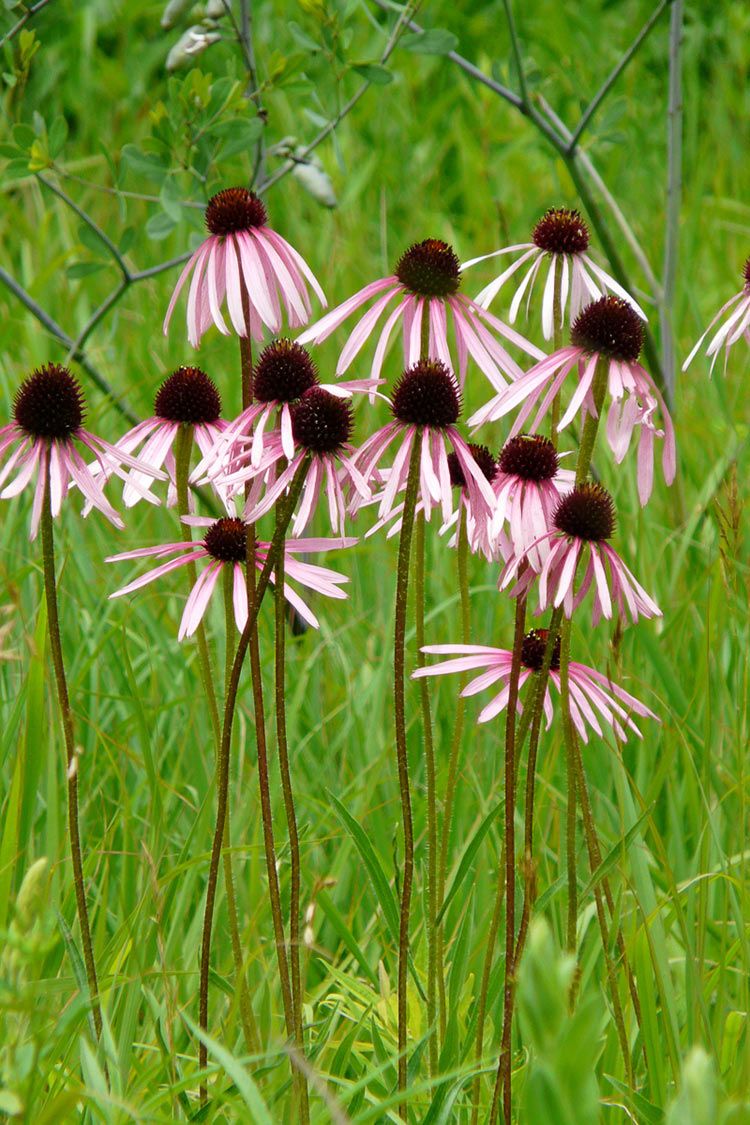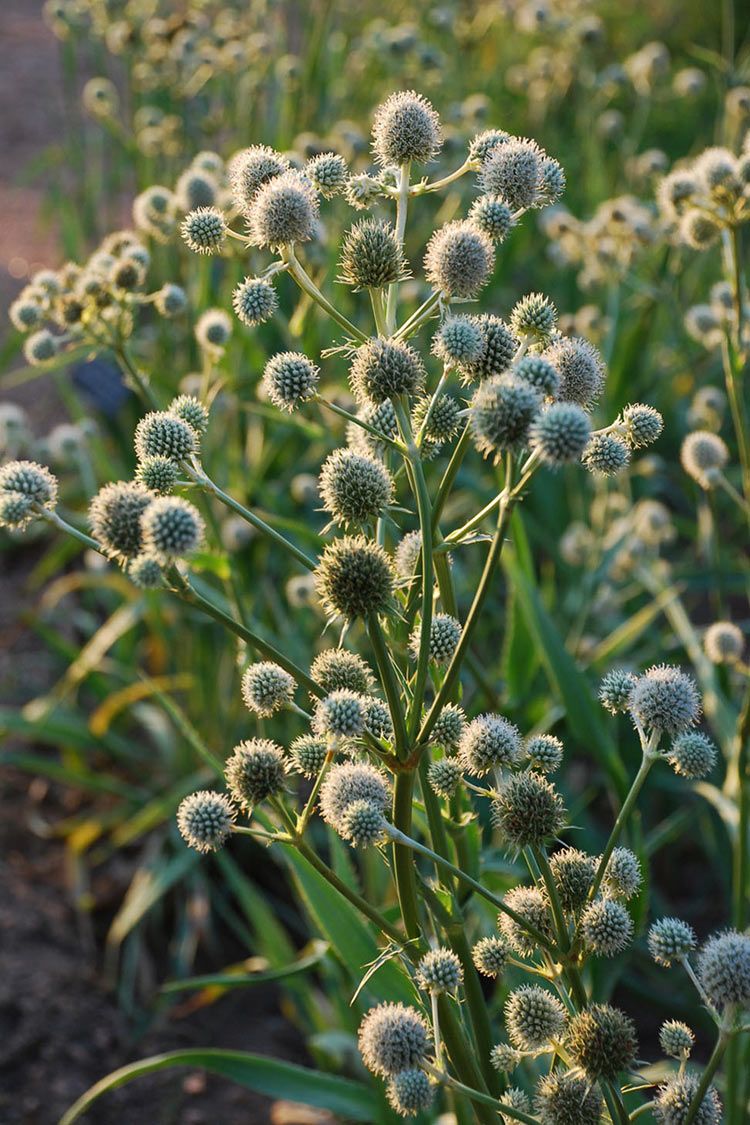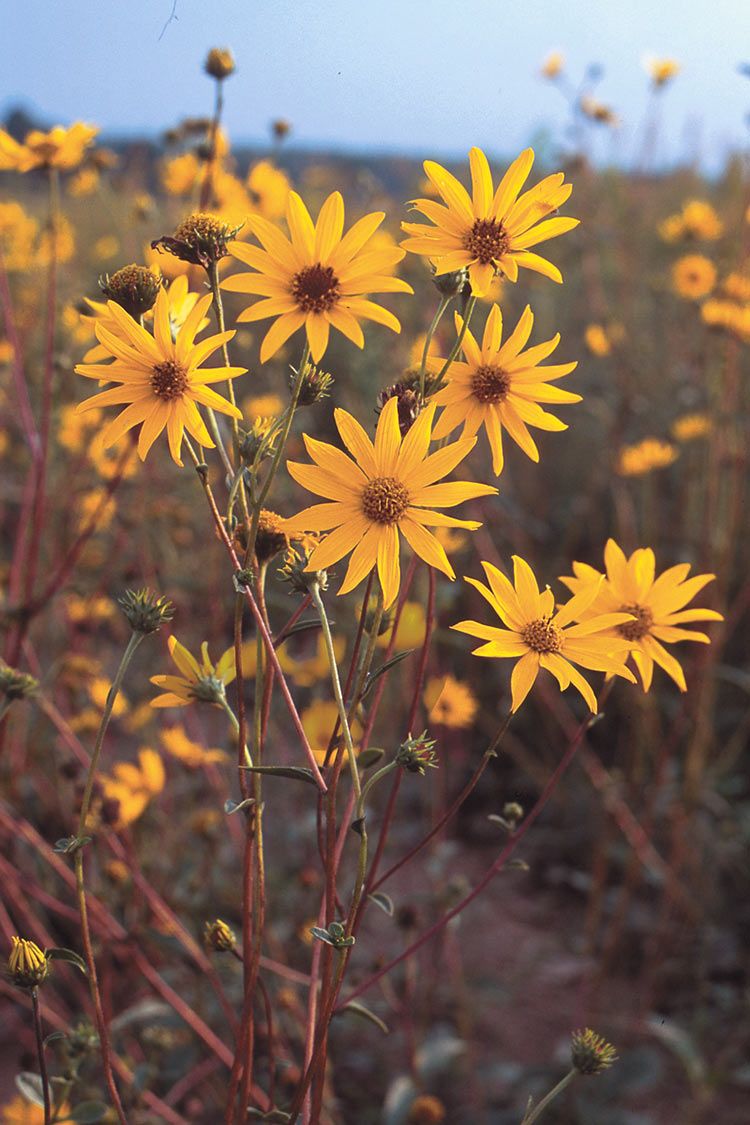Blue Sage
Salvia azurea, or Blue Sage, blooms for an extended period in late summer with bright blue flowers that really stand-out in a crowd. As with other Salvias, the leaves are very aromatic. Indigenous in the southern and western prairie states …
| Soil Type | Gravel, Loam, Sand |
|---|---|
| Soil Moisture | Dry, Medium |
| Sun Exposure | Full Sun, Partial |
| Height | 3' - 5' |
| Bloom Color | Blue |
| Bloom Time | June, July, Aug |
| Spacing | 1' |
| Zones | 4, 5, 6, 7, 8, 9 |
| Root Type | Taproot |
| Benefits | Pollinators, Hummingbirds, Host Plant, Deer Resistant |
Salvia azurea, or Blue Sage, blooms for an extended period in late summer with bright blue flowers that really stand-out in a crowd. As with other Salvias, the leaves are very aromatic. Indigenous in the southern and western prairie states, Salvia azurea is tough as nails and is an excellent choice for dry sites. Rocky prairies, limestone glades open woodlands are the natural habitats for this drought tolerant native.
The plants prefer poor soil and tend to flop in rich soils. This can be avoided if they are surrounded by a tight community of plants that includes grasses, which allows them the natural support that they prefer. Alternatively, once a plant is established (in the 2nd year) you may cut stems nearly to the ground in early summer to promote branching, or trim the plant back to just a few leaves in mid summer to avoid staking. Summer trimmings produce a shorter plant with more flowering stems.
Salvia azurea is a host plant for the Hermit sphinx moth (Lintneria eremitus).




